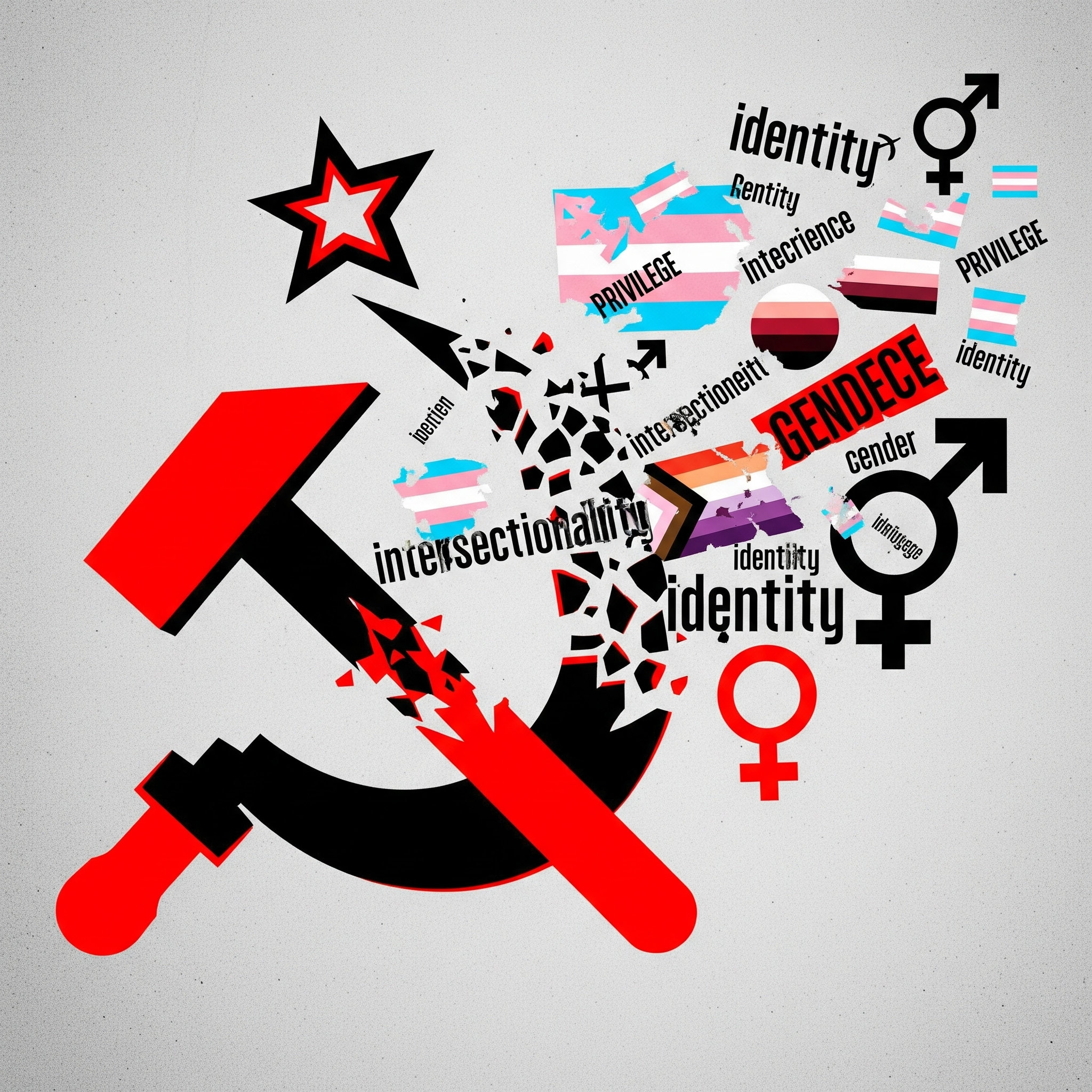When Marx Met Foucault: The Postmodernist's Paradox

There is a delightful, if deeply embarrassing, contradiction at the heart of contemporary political discourse: the self-proclaimed Marxist who has never actually read Marx. These modern revolutionaries, often found tweeting about 'smashing the patriarchy' or 'decolonising knowledge', seem to have mistaken the dialectical materialism of a 19th-century German philosopher for a radical form of subjective navel-gazing. They brandish hammers and sickles, quote from The Communist Manifesto, but their ideological toolkit is not forged in the furnaces of class struggle; it is a papier-mâché reconstruction from the lecture halls of postmodernist theory. The result is an intellectual farce, a potent brew of revolutionary aesthetics and anti-foundationalist dogma that betrays everything classical Marxism stood for.
To understand this profound confusion, one must revisit the bedrock of Marx's thought. At its core, Marxism is a materialist philosophy. It posits that history is driven by objective, quantifiable economic forces, specifically the relationship between the means of production and the people who work them. As Marx and Engels famously wrote in 1848, "The history of all hitherto existing society is the history of class struggles." Their analysis was rooted in a belief in objective truth, a scientific understanding of society, and a fierce commitment to economic change. The revolutionary subject was the proletariat, a class defined by its material conditions, not by its 'identity' or 'feelings'. This was a philosophy of bricks and mortar, of factories and wages, of things you could measure and touch.
Then came the postmodernists. While Marx was dissecting capitalism's economic contradictions, thinkers like Jacques Derrida and Michel Foucault were busy dismantling the very idea of objective truth. For them, language was not a tool for describing a shared reality but a system of power. Identity was not a fixed, material category but a social construct. Instead of a grand narrative of class struggle, they offered a world of competing discourses, subjective experiences, and the infinite malleability of meaning. This was, in many ways, an anti-Marxist project. Where Marx saw the factory floor as the site of revolution, Foucault saw the prison, the asylum, and the university as the sites of power-knowledge. It was a shift from the material to the semiotic, from the economic base to the ideological superstructure.
So, how did these two wildly different philosophies become an unholy matrimony? The intellectual lineage is messy, a kind of Hegelian dialectic gone horribly wrong. Postmodernist thought infiltrated academia, particularly the humanities, during the late 20th century. Leftist students and academics, disillusioned with the failures of 20th-century Marxism, began to graft postmodernist ideas onto a revolutionary framework. Class was no longer the sole axis of oppression; it was joined by a dizzying array of identities: gender, race, sexuality, and so on. The enemy was no longer the capitalist class, but an ill-defined, amorphous system of 'privilege' and 'hegemony' that existed primarily in the realm of language and discourse. The revolution was no longer about seizing the means of production; it was about 'dismantling' oppressive language and 'disrupting' normative categories.
This intellectual fusion has led to some truly bizarre political positions. Consider the student activist who champions the rights of the 'working class' from a position of immense economic privilege, all while simultaneously arguing that 'class' itself is merely a social construct. Or the revolutionary who, in one breath, calls for the overthrow of the state and, in the next, demands that the state enforce a subjective linguistic regime. This isn't Marxism; it's a form of bourgeois idealism dressed up in revolutionary drag. It's the ultimate 'first world problem' – a class-conscious movement that has forgotten its class. As Marxist-Leninist scholar A.L. Morton wrote in 1938, "The real world is not a collection of private experiences but an objective reality with its own laws of motion." The postmodernist Marxist, sadly, has lost sight of this entirely.
The funny thing is that this hybrid ideology is profoundly anti-materialist. It ignores the fact that a working-class single mother in Leeds, struggling to pay her electricity bill, is not an abstract concept. She is a woman facing a tangible, economic reality. The postmodernist preoccupation with gender identity, for instance, often misses the very real, material differences between men and women – differences that have a profound impact on everything from labour markets to physical safety. By reducing everything to a matter of language and subjective experience, this new brand of 'Marxism' accidentally provides cover for the very real economic structures it claims to oppose. After all, if all oppression is just a matter of discourse, then you never have to actually do anything about the tangible inequality of wealth and power.
In conclusion, the self-proclaimed Marxist of the 21st century is a tragicomic figure, a revolutionary who has abandoned the revolution's material base. They are a person who believes in the objective truth of their identity, yet denies the objective truth of history. They see themselves as fighting for the oppressed, yet have adopted a philosophical framework that makes it impossible to define who the oppressed truly are. The symbols of Marx and Engels – the hammer and sickle, the rallying cries for a workers' revolution – have been co-opted, drained of their original meaning, and repurposed for a new ideological war of a very different, and much softer, kind. The irony, as a true Marxist might say, is delicious.